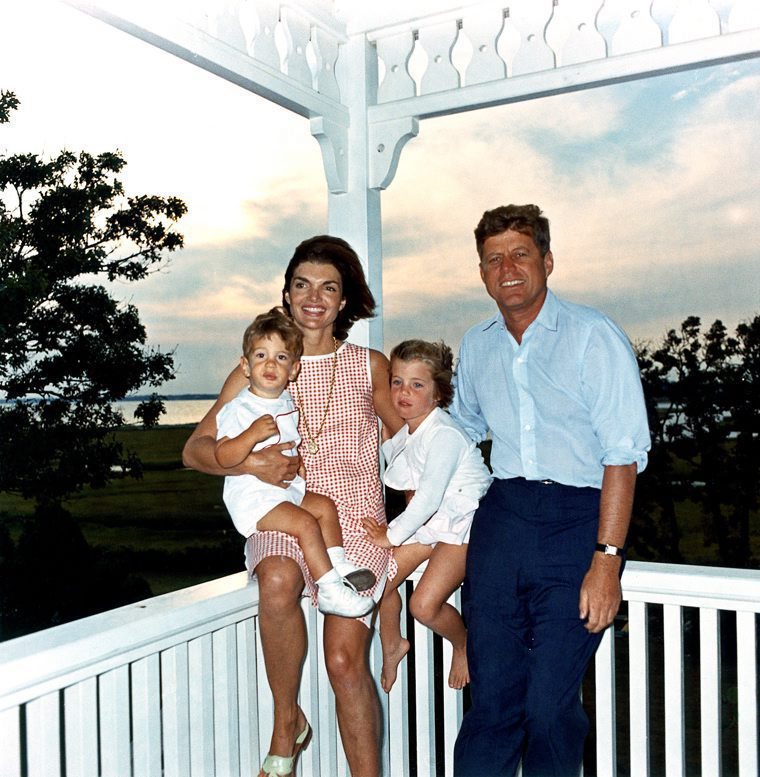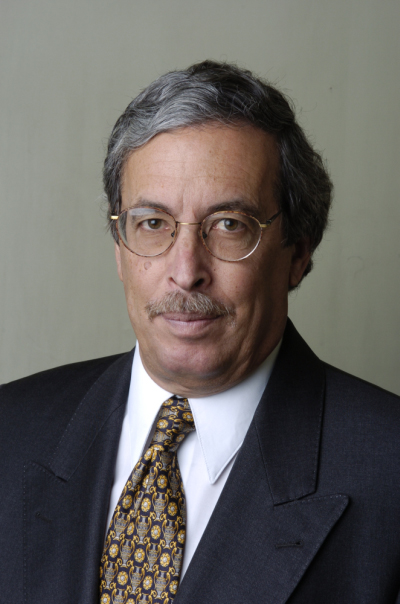
‘I walked home, stunned and disoriented’

John F Kennedy was a symbol of hope, not to mention “youth, dynamism and cultural glamour”, a Swiss-American political scientist tells swissinfo.ch. That symbolism was extinguished with his murder.
Daniel Warner, formerly of the Graduate Institute of International Studies in Geneva, was 17 when the 46-year-old president was shot in Dallas on November 22, 1963.
He remembers Switzerland’s “exotic” and “exclusive” image among Americans at the time and looks at the similarities – and differences – between Kennedy and Barack Obama.
swissinfo.ch: Can you remember where you were when you heard Kennedy had been killed?
Daniel Warner: Of course – it was a defining moment for my generation. We all remember. I was at basketball practice at school in New York. Someone came in and told us; we stopped playing and I walked home, stunned and disoriented. I got home, my parents were there – we just sat and watched television.

swissinfo.ch: What was your opinion of Kennedy until then? Had you been impressed by him?
D.W.: Oh yes, but it was not just Kennedy. It was the aura of the people around him. You have to remember that we were coming out of the Eisenhower era, a president who had trouble speaking, inarticulate. Kennedy was someone who represented for me, my family and for many people a different generation, a different culture. My parents had friends who were part of the circle around Kennedy.
It was not only a political change but also a fundamental cultural change. There was huge hope in terms of being more European, more cosmopolitan and cultural: there was Pablo Casals [Catalan cellist who took part in a concert at the White House in 1961 at the invitation of Kennedy], Harvard, people like [social critic] Arthur Schlesinger and [presidential adviser] McGeorge Bundy, whom [historian] David Halberstam would later ironically call the “best and brightest”.
Kennedy represented youth, dynamism, cultural glamour – something the United States had not had before.
Daniel Warner was born in New York in 1946. He has lived in Geneva since 1972. He has dual US-Swiss citizenship.
He earned a PhD in political science from the Graduate Institute of International Studies in Geneva. His thesis and later book An Ethic of Responsibility in International Relations was awarded the Marie Schappler Prize by the Société Académique de Genève in 1991.
Warner has lectured around the world and published extensively on multilateralism, US foreign policy, ethics, refugees, international law, international relations theory and security.
He has served as an adviser to the ILO, UNHCR and NATO and been a consultant to the Swiss foreign and defence ministries and in the private sector.
In 1994, he established the Program for the Study of International Organization(s) (PSIO) at the Graduate Institute, where he served for many years as the deputy to the director. The PSIO served as an interface between academics and policy-makers.
Since his retirement from the Graduate Institute in 2010, he has been the assistant director for international affairs at the Geneva Centre for the Democratic Control of Armed Forces (DCAF).
swissinfo.ch: There seem to be similarities between Eisenhower/Kennedy and Bush/Obama.
D.W.: Absolutely. It was what we called in the Sixties the Culture Wars. Eisenhower was a military man from Kansas and represented Middle America; Kennedy was from Boston, he had studied at the London School of Economics, his wife spoke French and he represented a cosmopolitan and a closer tie to Europe, a transatlantic relationship.
Obama was not only transatlantic but global in the sense of having connections to Indonesia, Hawaii, Africa. The hope was even one step higher with Obama. But the people around him – the Chicago clan – were not quite the same as the people around Kennedy, who really were the best and the brightest.

More
JFK death: media reaction in a pre-digital world
swissinfo.ch: How was Switzerland seen by Americans 50 years ago?
D.W.: Exotic. In the 1960s you didn’t have budget airlines so coming to Europe was a big thing. For an American to go to Europe – like Kennedy going to London – it was a cultural statement.
I remember going into the first McDonald’s in Switzerland [which didn’t open until October 1976 in Geneva], so there was less of that kind of Americanisation. Switzerland was exclusive.
swissinfo.ch: How about intellectual ties? Were there close links between scientists and universities?
D.W.: There were some Americans at the Graduate Institute [in Geneva], but you didn’t have the mobility that you have today.
The kinds of people who would have come here would have been – how can I say this? – culturally upper class. They would probably have had some relation with Europe, and certainly French was a rather elitist language. Coming to Europe was something that well-raised people, especially from the East Coast, did. There wasn’t mass tourism at all.
Since the 19th century, shared values such as democracy, the rule of law and respect for human rights have provided the basis for a relationship of friendship between Switzerland and the US.
In 1822, Switzerland opened its first consulates in Washington and in New York, and 60 years later, in 1882, the opening of the Swiss Embassy in Washington marked Switzerland’s first embassy outside Europe.
Between 1700 and 2009, about 460,000 Swiss citizens emigrated to the US; in 2012, 76,330 Swiss citizens were resident in the US (about 10% of Swiss abroad). The number of Americans with Swiss origin is estimated to be around one million.
The United States is the second-largest export market for Switzerland and an important hub for education and research.
In 2011, Switzerland exported goods valued at CHF1.3 billion ($1.4 billion) to the US, and the country is by some distance the most important destination for Swiss direct investment abroad (2010: CHF177.1 billion). More than 550 Swiss companies have established themselves in the US, employing approximately 400,000 people.
Switzerland has been representing US interests in Cuba since 1961, and since 1991 the interests of Cuba in the US. Switzerland has also represented US interests in Iran since 1980.
(Source: Swiss foreign ministry)
swissinfo.ch: What do you think might have turned out differently had Kennedy lived?
D.W.: Well the seeds for Vietnam were planted under Kennedy. Those sympathetic to him say he would never have got so deeply involved in the way [his successor Lyndon B] Johnson did. They can’t imagine Kennedy would have thrown all those troops in.
Having said that, the cold rational analysis of his presidency is not overly glorified – you can’t point to great things in legislation that he achieved. The positive argument would be that he didn’t have enough time, the negative one would be that he was more a symbol and perhaps a playboy and not really interested in the nuts and bolts of government.
swissinfo.ch: How have US attitudes to Europe and Switzerland changed over the past 50 years?
D.W.: For Kennedy’s generation, Europe was important – culturally and politically. Today, more young people [in the US] probably learn Arabic or Chinese than French or German; they see the future more in those regions than in Europe. Previously, coming to Europe was part of a proper education; that might not be the case today.
Although Obama has spoken of “pivoting” to Asia, the European Union remains a huge force economically – politically less so.
swissinfo.ch: The previous US ambassador to Switzerland left the post six months ago and has yet to be replaced. What does that say about the importance attached to Switzerland?
D.W.: Well that’s always been a political appointment – contribute enough money and the job’s yours. It’s not a major posting, but, look, it’s a small country.
As for politicians, they have an image – [US Secretary of State] John Kerry went to school here but he will not speak French in public. There is a populist movement in the US that goes against the Swiss image of money, banks and exclusivity.

In compliance with the JTI standards
More: SWI swissinfo.ch certified by the Journalism Trust Initiative




























You can find an overview of ongoing debates with our journalists here . Please join us!
If you want to start a conversation about a topic raised in this article or want to report factual errors, email us at english@swissinfo.ch.